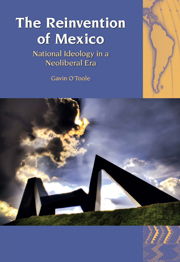3 - The Reform of Article 27
from II - Construction: State Discourses
Summary
The first of the two ways in which liberalism can be said to conflict with nationalism – at the level of the individual – can be examined by looking at discourses surrounding the reforms made in 1991–92 to Article 27 of the Constitution – Mexico's nation-building charter. The debate surrounding the reforms coalesced around the themes of property ownership and social inclusion, and the changes to property rights they envisaged were accompanied by a changed conception of citizenship. This debate had at its core the tension between the liberal conception of individual property rights and notions of collective patrimony, and these positions, in turn, influenced rival conceptions of the role of the state and its relationship with society. Salinas sought a reconciliation between these property forms in the tradition of social liberalism, while attempting to shift the equilibrium between them further towards individual rights. Salinismo modified the traditional fear of rural unrest deriving from uneven access to property and the accompanying belief that legitimacy derived from the state's ability to maintain stability through redistributive policies.
On the one hand, salinismo claimed a revolutionary nationalist legitimacy for its reforms in the nation-building spirit of Article 27; on the other, it believed that stability was no longer dependent in the same way upon the statist social pact, and that it was the potential of market participation to increase the productivity of a marginalized peasantry that now offered the main source of the social inclusiveness that engendered stability.
- Type
- Chapter
- Information
- The Reinvention of MexicoNational Ideology in a Neoliberal Era, pp. 75 - 102Publisher: Liverpool University PressPrint publication year: 2010

